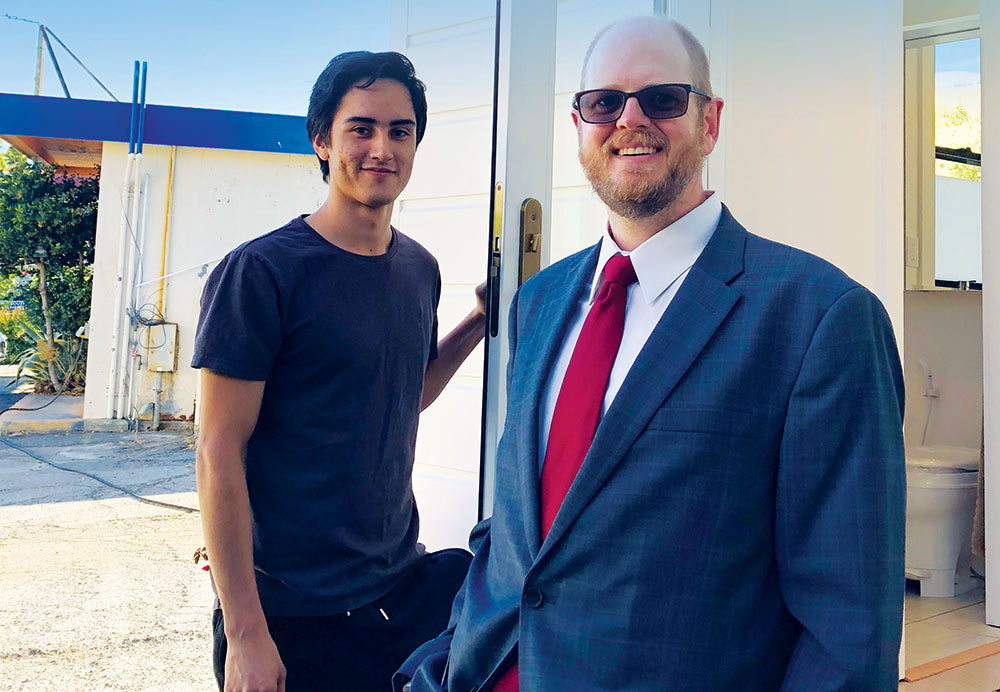The homes may be tiny, but the career options are big with Big Skills Tiny Homes. This Marin nonprofit provides self-discovery, mentoring and skill development to students interested in the trades.
During the nine-month program, students learn the trade skills needed to build a house—a tiny house—that is then sold to fund the next team of student builders.
Sean Ticknor, president and founder of the nonprofit, explains why he began the program.
“As a construction-industry professional for the past 20 years I am aware of the need for more skilled tradesmen and tradeswomen,” he says. “And, as a parent actively engaged in the community, the high schools are not providing any kind of pipeline for skilled tradespeople, but there is pressure to go to college.”
Ticknor wanted to fill that gap. So last fall, with 18 years of experience working as an engineer and structural designer, he led three student builders—Melena King, Melkyn Mazariegos and Owen Navarro—through the entire home-building process.
“I see the need to offer high school graduates an additional option—an option that would give a young person the opportunity and time to experience the trades,” Ticknor says. “An option that would build a young person’s skills and confidence. And, an option that would result in the identification of a financially rewarding and satisfying career—without the accumulation of considerable debt.”
Indeed, students these days need more options upon graduation, as well as mentors to help them navigate those options. Through the process of building a tiny home from start to finish, students are exposed to a variety of trade disciplines and are then mentored afterward to use their experiences to identify their future career path.
A natural mentor, and regular volunteer at his two sons’ schools, Ticknor found that the kids in the program were eager to learn and that experts in the trades were also very willing to share what they knew.
“It was a delightful year, the kids learned so much,” he says. “Tradespeople are thrilled to share their expertise and are more than happy to share their skills and knowledge. Guest speakers and field trips were easy to arrange.”
From September 2019 through May 2020 the team worked Monday–Friday from 8:00am to 12:30pm, learning every skill needed to build a tiny house. In the fall, they learned everything from trailer preparation and foundation work, to floor, wall and roof framing, sheathing, and door and window installation. In winter, it was time to install siding, a roof, plumbing and electrical, gas lines, HVAC and insulation; and to do the trim work. In late spring, the finishing touches were added—appliances, a complete kitchen and bathroom, built-ins and paint.
“The first build couldn’t have gone much better, except for the Covid-19 lockdown at the end,” Ticknor says. “All of them have a job if they want it—two are working right now, the other is in school.”
The beautiful home they built was finished in May and is now for sale. When it sells, the money will go toward funding the next tiny house build. They are now accepting student applications or the next round of the paid program, which begins Sept. 8, 2020.
“We believe in self-discovery through real-world experiences, because knowing what you like to do and what you are good at leads to a career you love,” Ticknor says. “Being a mentor is a real privilege—I am so delighted with this first round of three students; each one was so hard-working, smart and attentive. It’s great to see that each one is working toward something that matches their personality.”
Besides, tiny houses are the wave of the future, especially if you can build one yourself.






